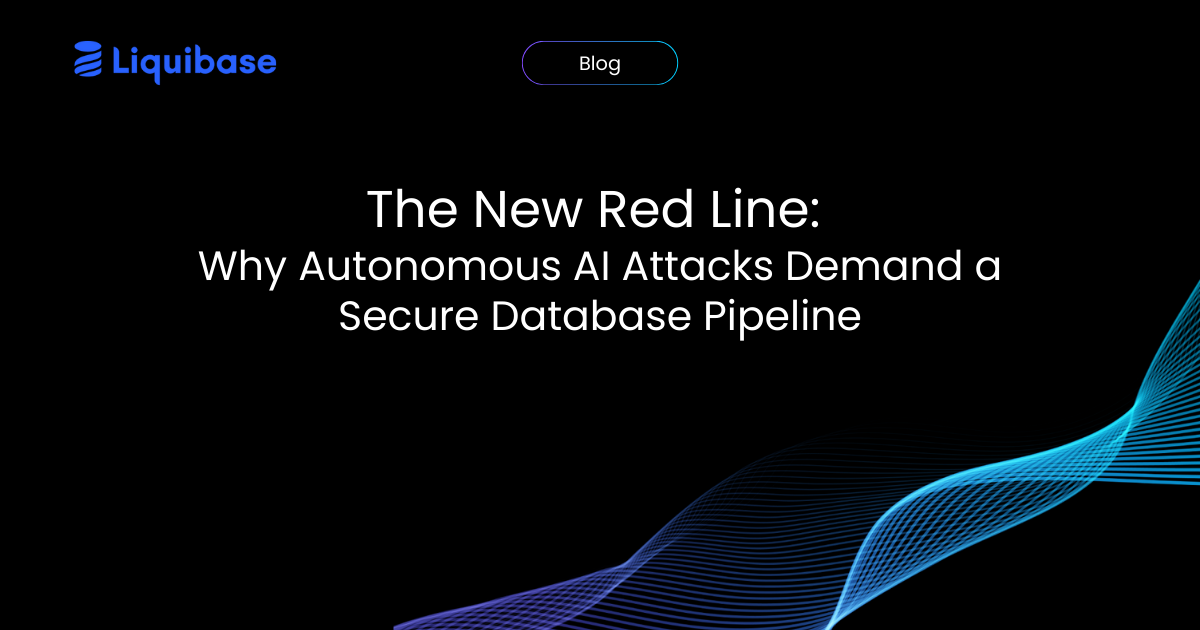Reducing lead time to change with database deployment automation (real results)
October 9, 2024
See Liquibase in Action
Accelerate database changes, reduce failures, and enforce governance across your pipelines.

Frustratingly, painfully long lead times for database changes can slow down and disrupt even the most advanced application delivery pipelines. Yet by extending DevOps to the database with an automation, governance, and observability solution, teams can bring down lead time for database schema changes in line with application code.
When database schema change is treated as code, it can be integrated into the robust, rapid, scalable pipeline that drives an organization’s market-leading application development. Teams using Liquibase show how database DevOps automation drastically reduces lead time to change for faster and more frequent, agile, and reliable deployments.
.png)
Slow, inefficient database change workflows hold back the entire pipeline
If database deployments go from taking multiple days to processing in less than two hours, for example, the entire pipeline can operate faster and more efficiently.
In the case of this international logistics company, the automation of database change review and deployment reduced the DBAs’ manual review tasks by more than 90%. In fact, after integrating Liquibase to automate, govern, and monitor database change management, the team had an overall workload reduction of 20%, allowing them to focus on more impactful matters.
With Liquibase, a complete database DevOps solution, teams like these enable smaller, more agile changes integrated with the rest of the DevOps pipeline to drastically reduce lead time to change by:
- Accelerating deployment velocity by integrating database changes with the automated DevOps pipeline
- Increasing deployment frequency by enabling small, agile changes
It’s not only a frustrating scenario for application developers that have to wrangle change requests, reviews, revisions, and drawn-out deployments. DevOps teams feel the pain of the bottleneck, too, as do DBAs spending the majority of their working day combing through change requests. Instead of optimizing workflows and exploring next-gen data stores and other capabilities, DBAs and DevOps teams are stuck in repetitive, tedious workflows to achieve the depth, rigor, and safety their oversight requires.
Streamlining change review enables speed and frequency
“The team reviews each and every script – and it takes forever,” one team at a worldwide health and security organization explained of its pre-Liquibase workflow.
In their case, which involves managing millions of client records, the problem of slow, disruptive database changes was amplified across more than 250 SQL Server pipelines. Before integrating database DevOps automation with Liquibase, every schema change took at least two full working days. Even then, the changes too often deployed with errors that sent them back through the pipeline again, further stalling the company’s ability to evolve and advance their market.

Once they brought on Liquibase to extend DevOps automation, governance, and observability to their database change workflows, they were able to spend 70% less time reviewing changes. Most impactfully, though, they achieved:
- 8x faster deployments
- 4x more frequent deployments
- Less than 10% error rate
These improvements stack up to drastically reduce overall lead time to change. Plus, it has enabled the team to focus on the next phase of their database DevSecOps journey: leveraging Liquibase’s observability capabilities to bring deployment metrics to pipeline monitoring dashboards. With that visibility, they can achieve a continuous optimization cadence for the database workflow.
Reducing risk with smaller, more frequent deployments
Long lead time to change for database deployments isn’t just purely a speed and efficiency problem, but can inflame the inherent risk involved in many industries dealing with sensitive or valuable data. When it takes a long time to fortify, update, or evolve database structures, an organization can lose footing in the market as others release new features, security enhancements, and other compelling capabilities before they can.
It can also mean the difference between a headline-grabbing data breach that impacts millions and a small hiccup that’s easily sorted with a rapidly released database change.
.png)
For a global banking leader focused on modernizing the infrastructure behind more than 30 FinTech apps, its painstakingly slow database deployments had to be addressed. If not, their cloud modernization shift would go off the rails and customers might not have adequate security, confidence, or capabilities when it comes to their money. DBAs, though, spent 70% of their time just manually reviewing database changes, so the opportunity to find process enhancements were scarce.
The financial institution's head of database engineering turned to Liquibase to drastically reduce their lead time to change for structural database updates. Once her teams implemented the database DevOps solution across all of its finance apps, they marked an 85% reduction in the amount of changes needing manual intervention. Most impactfully, they achieved:
- 8x faster deployments
- 8x more frequent deployments
- Less than 10% error rate
With compliance, control, and observability also handled by Liquibase, the team grew the confidence it needed to take on cloud migrations – and expand database DevOps to the rest of its global data pipelines.
.png)
Learn more about reducing lead time to change with Liquibase and other pipeline-accelerating success stories in our case study library. Ready to start your own journey to complete database change automation, governance, and observability? Get your on-demand demo of Liquibase.





.png)
.png)
.png)





